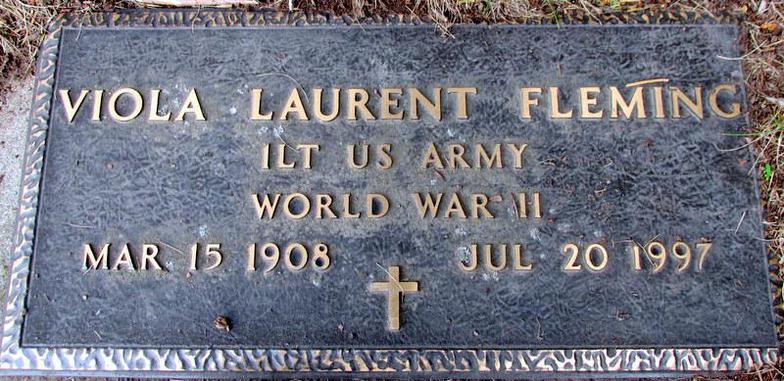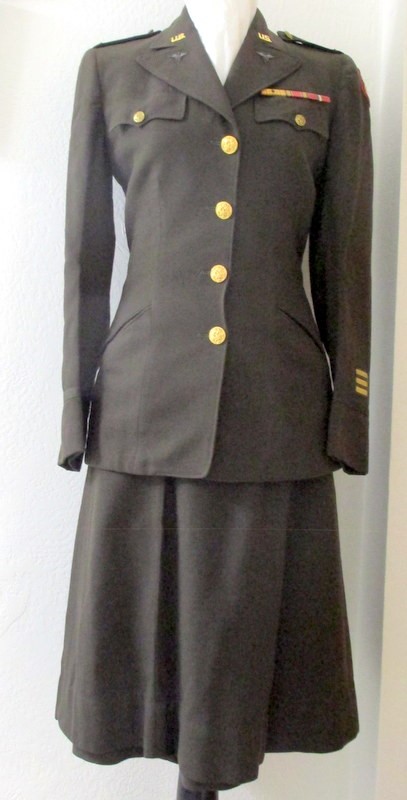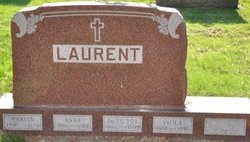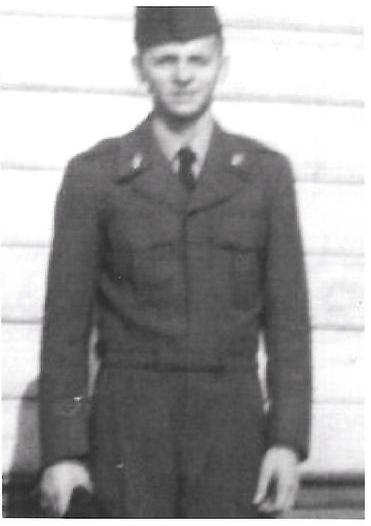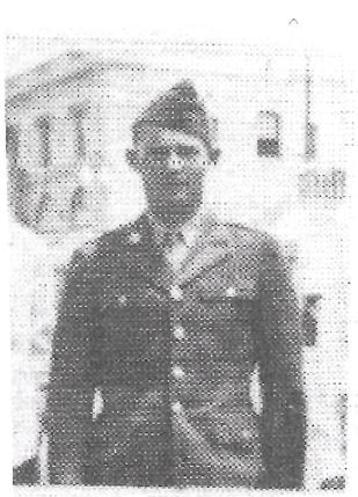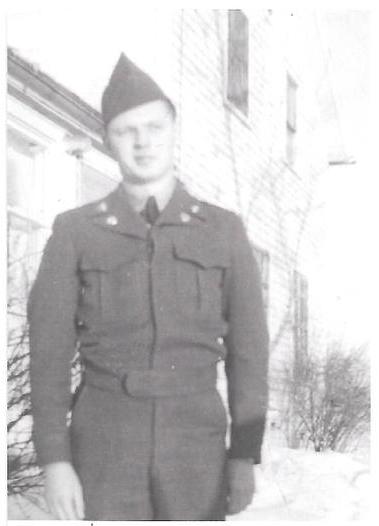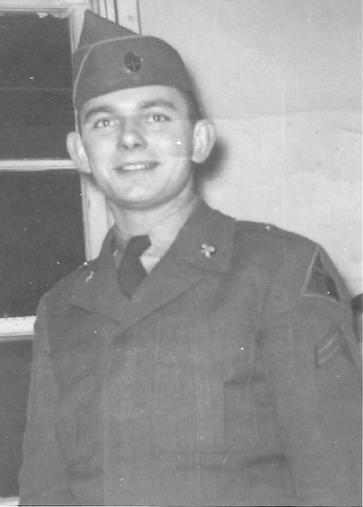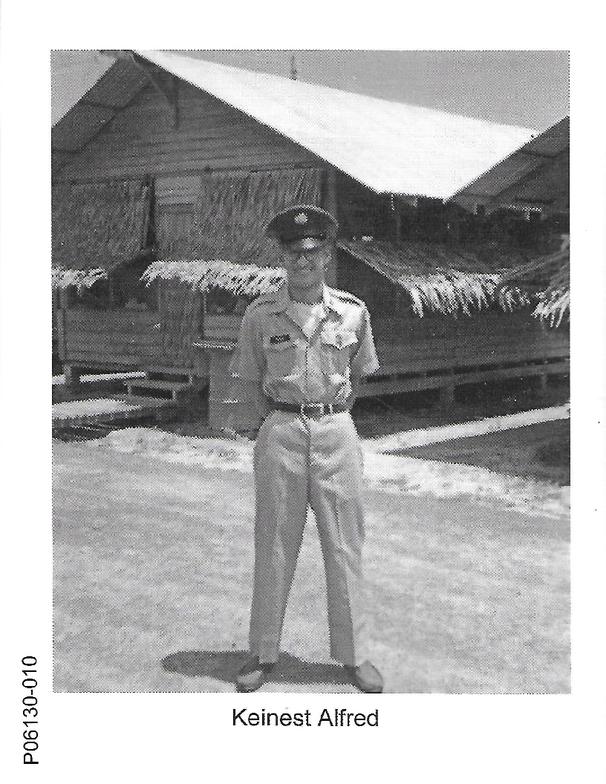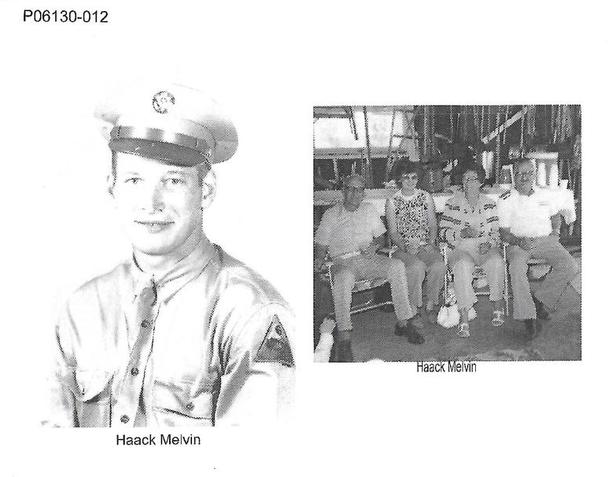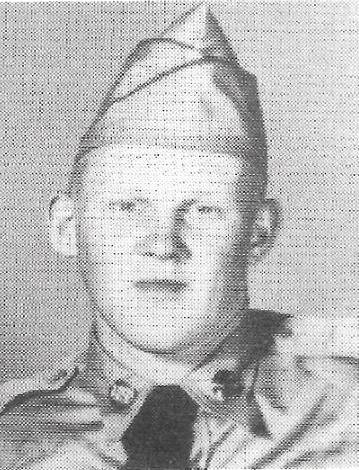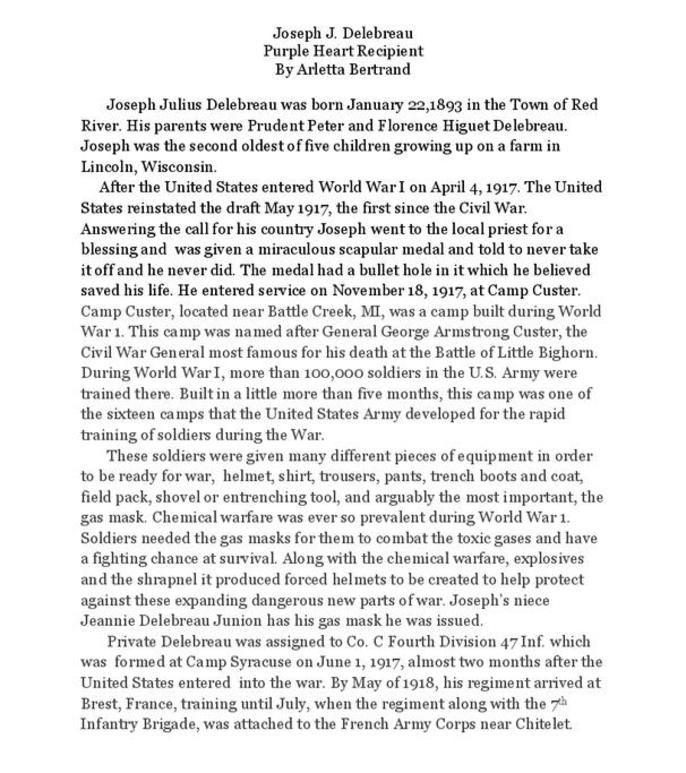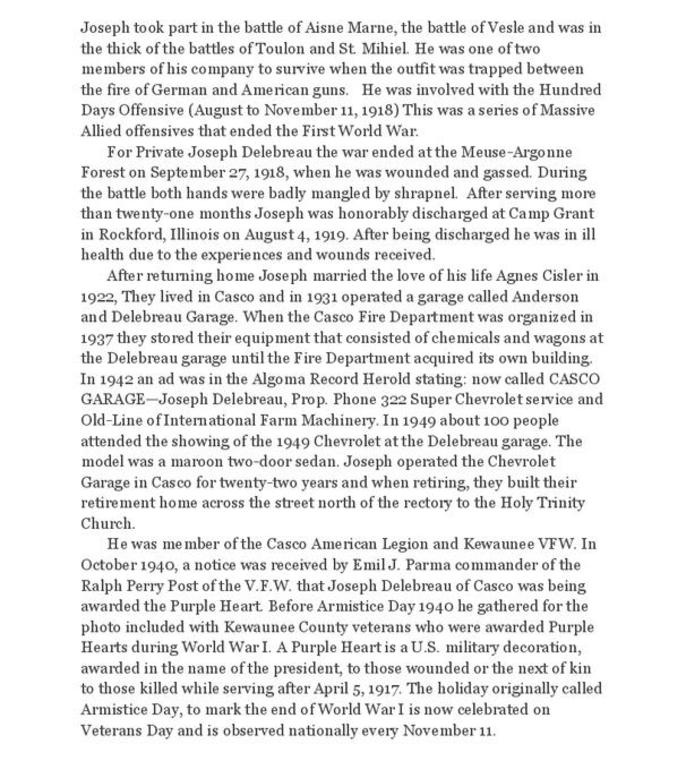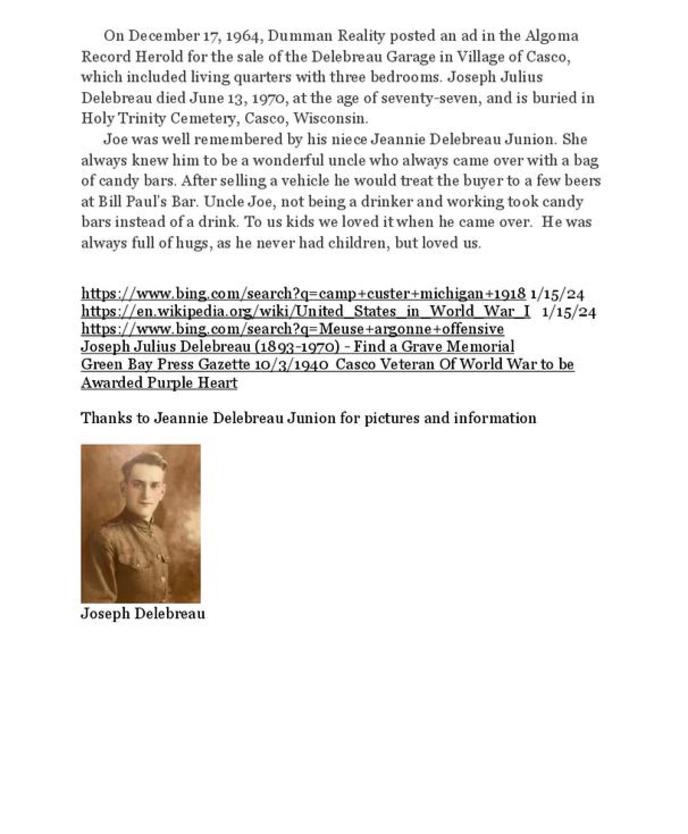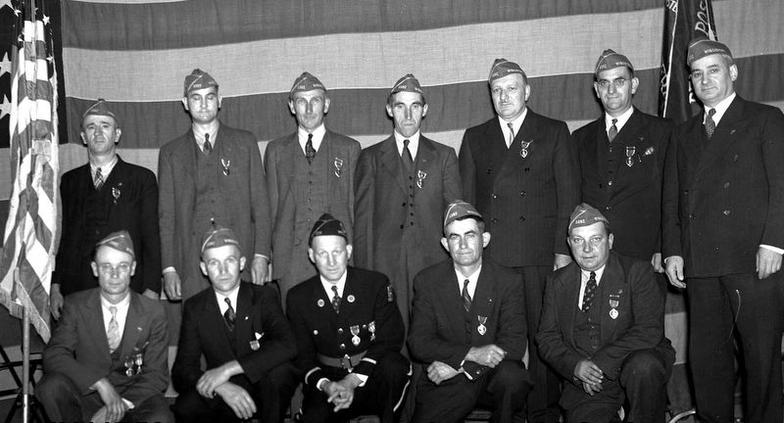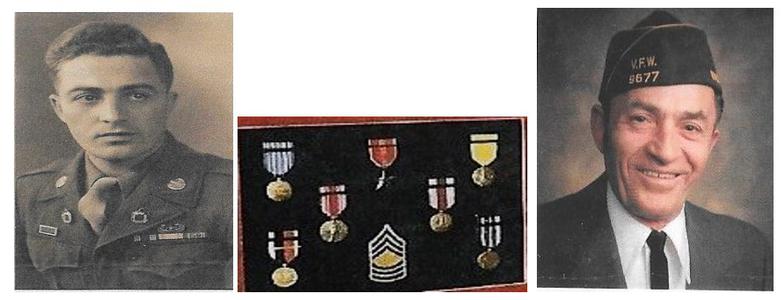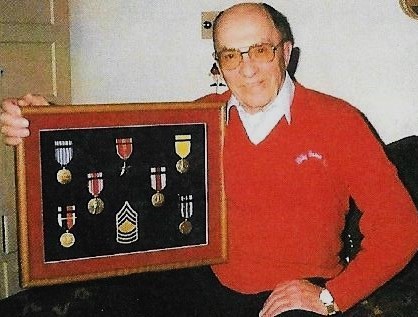Kewaunee County Historical Society
Call us: 920-388-0369
Give us some feedback on who you would like to see honored on our Military page!
Kewaunee County History Center
Military
The Kewaunee County Historical Society will be honoring veterans from our county's past on this page. Tribute to additional veterans will be made with each update to our website.
Those Who Served will give recognition to veterans from different military periods in Kewaunee County's history. There were service personnel, men and women, who made the supreme sacrifice for our country. This page will preserve for our readers, stories about these not to be forgotten heroes.
1st. Lt. Vola Laurent
1908-1997
The Mystery Person
By Gerald Bertrand
This author has been taking care of St Mary Cemetery for many years and putting flags on veterans graves for the last ten years on Memorial Day. I know she was a daughter of Doctor Victor Laurent from the Village of Luxemburg, Wi. It is hard to write about Viola without first writing about Doctor Laurent. Doctor Laurent practiced veterinary medicine for forty-one years in the Luxemburg area.
When I was about 4 or 5 years old I remember him coming to my father’s farm for a service call to do some vet work with the cows and horses. A friend of mine told me a story about his father calling Dr. Lauren in the evening about a horse that had colic. Dr was all dressed up to go out for some occasion. He told him to get a pint of moonshine from a known locale producer and give it to the horse. It seemed to work, so his father kept some on hand all the time. The horse didn’t seem to mind the treatment either. My friend’s father probably licked the cork before giving the treatment.
Dr. Victor Laurent was founder and past president of the Kewaunee County Fair Association, served on the Luxemburg Village Board, and Luxemburg Bank Board. He had a small mink ranch in Luxemburg near his home.
Viola Laurent was born March 15, 1908, the oldest of Victor and Anna Kumbalak Laurent’s eight children. The first writing I could find was when she won first place in the poultry division on September 11, 1925, at the Kewaunee County Fair. She graduated from Luxemburg High School in 1926. Two weeks after school was out on June 10, 1926, Viola left Luxemburg on the morning train for Milwaukee for employment. In 1927 she left Luxemburg with her sister Madeline to study nursing in Watertown, Wi.
Viola was at St. Theresa School of Nursing in Waukegan IL. On June 10, 1931, she gave the commencement speech at her graduation. The next listing, I found was when she was a nurse in a hospital at Cape Province, South Africa in 1934. In 1935, Viola was at a Veterans Hospital in Waukegan, IL. In 1940, she worked as a nurse at a State Hospital in Peoria, IL . In 1944 she was at the 91st General Hospital, Shick Hospital Clinton Iowa.
The Schick Hospital was taken over by the military June 20, 1943, for its use. The hospital complex occupied about 160 acres and at peak capacity had 3,600 patients during WWII. On July 28,1944 it was determined that nurses in Army Hospitals should receive an Officer Commission. On September 26, 1944, Viola entered the armed forces. She had to go through army nurses training where there were road marches, bivouacs camping outdoors, tent pitching of heavy hospital tents the size of a barn in all weather. 1st. Lt. Viola Laurent stayed at that hospital until March 11, 1946, when she was discharged after the war. Later in 1946 she was a registered nurse in Waukegan, Il Veterans Hospital and served as head nurse in the Psychiatric Ward. From 1950 to 1954, Viola was a RN at a hospital in St. Louis MO.
In 1955 Viola was back again at the VA Hospital in Waukegan IL as Head Psychiatric Nurse. Also, in 1955 she married David Fleming from Waukegan. Not much is found about him. They didn’t have any children. David died 1970 and is laid to rest in Waukegan.
Very little is known after this point. She must have kept her head nurses position in psychiatric ward at the VA Hospital until retirement. Then she returned to DePere near her sister and brother-in-law Cleo and Carl Sturdevent.
Viola Lauren Fleming aged 89 died on July 20, 1997, at a local nursing home in Green Bay, Wi.
Her obituary reads as follows. She was a registered nurse and was a U.S Army Veteran of World War II. Viola had been a Head Psychiatric Nurse at the Veterans Hospital in Waukegan, IL prior to returning to this area. She was proud of the procedures she developed and are still used to teach new nurses today.
In her many years of nursing, Viola Laurent surely encountered much trauma in the veteran hospitals. Her extensive service and travels helped her in working with our veterans. She was a remarkable person who served her country well in times of its greatest needs.
Shick General Hospital www://.med-dept-dept.com/unit-histories/91st-general-hospita/
Town Tidings Luxemburg News – 9/11/1925,9/02/1927,6/12/1926
Kewaunee Veterans Administration 08/03/2023
Dr. Victor Laurent obituary—Luxemburg News 1/27/1959
Viola Laurent Fleming obituary Green Bay Press Gazette 7/22/1997
Photos by Gerald Bertrand
Information from Ron Flemal
https://www.findagrave.com/memorial/70160905/viola-fleming
1st Lt. Army nurses dress
Located in St. Mary Cemetery-Luxemburg, Wi.
Those Who Served
Larry Bouchonville
US ARMY
Wilfred Bredael
US ARMY
WWII
Ben Estel
ARMY KOREA
1950-1952
Ken Kust
US ARMY
ACTIVE DUTY 8/1954 - 8/1956
Marlin Zimmer
US ARMY
Top Row Anton Ciha—Theophile Lehnert—Charles Knipp-Wensel Tuma—John Legois-Joseph Delebreau—Emil Parma
Front—Frank Wessly—Louis Kirchman—Carl Lidral—Eugene Boureain-Joseph Walecka
 | ||||
Hubert B. Jauquet
WWII Survivor
By Gerald Bertrand
The 1947 County Atlas stated that Kewaunee County being a small county with limited population of about 20,000, 2,364 soldiers sent to WWII of that 39 were killed. Many more were wounded.
Sources: Marion Jauquet Family, Gerald Bertrand Recollections, John Maino’s, Frontline, World War II.




